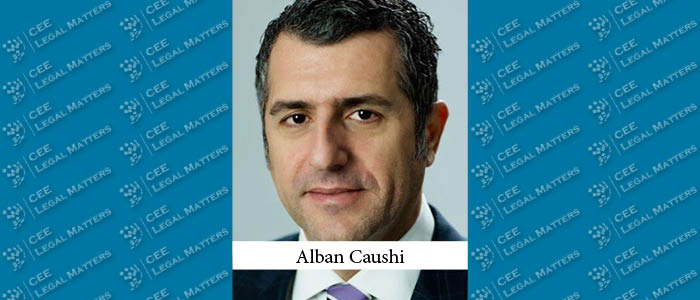Albania’s real estate market has undergone a significant transformation in the last decade, attracting global attention across the residential, commercial, and tourism sectors. This surge in interest is a result of the country’s economic and legislative reforms, political stability, successful justice reform implementation, and progress in the EU accession process. These factors collectively present investors with promising opportunities in Albania’s dynamic and evolving market.
Over the past three years, the capital city of Tirana has witnessed a notable increase in construction permits for large-scale buildings exclusively designated for business activities. These include office spaces, commercial establishments, and hotels – all concentrated in and around the city center. While real estate prices in these areas are rising, and most properties are sold off-plan, concerns are emerging regarding the actual demand for such developments. The downside of centric development is evident in the inadequate alignment with urban planning standards, including infrastructure, density, and utility services.
The coastal regions along the Adriatic and Ionian coastlines have experienced a heightened demand for beach vacation rentals, significantly contributing to market growth. Assessing the potential of the tourism and hospitality industry, the Albanian Government has adopted a package of legislation designed to incentivize and facilitate investments, deeming it vital for national development and a mainstay of the country’s economy.
Law No. 93/2015 “On Tourism” encourages potential investors to invest in tourism and hospitality facilities by offering state-owned land at a nominal rate of EUR 1 for a lease term of 99 years. Simultaneously, Law No. 55/2015 “On Strategic Investment,” as amended, offers streamlined administrative procedures to investors meeting the threshold for strategic investment status. The government, keen on ensuring high-quality development, has adopted legal instruments to stimulate investments in 4- and 5-star branded hotels and resorts.
The legal framework introduces favorable fiscal measures, including a reduced VAT rate of 6% for supplies to 5-star hotels with special status. Noteworthy legal exemptions, such as zero infrastructure tax, zero property tax, and zero profit tax for a decade, are granted to investors holding strategic investor status, enhancing the legal attractiveness of Albania’s real estate market in the tourism and hospitality industry.
While the incentives for investing in tourism and hospitality are highly promoted, another significant trend has been emerging. Only local investors engage in direct investments, while foreign investors predominantly favor indirect participation through franchise and management agreements. The arrival of renowned hotel brands such as Melia Group, Hyatt, Radisson, Intercontinental, and Hilton into the Albanian tourism and hospitality market serves as a clear indicator of the potential growth in the real estate-focused tourism industry sector in the coming years.
It’s essential to note that most of the statutory incentives will be applied until the end of 2024. The World Bank and various international organizations have consistently urged the government to strike a legal balance between economic interests and environmental sustainability. This equilibrium is imperative to ensure the long-term resilience of these sought-after coastal regions.
In conclusion, Albania’s real estate landscape is at a crossroads, presenting both opportunities and challenges. The surge in construction permits and investments in the tourism sector indicates a promising trajectory. However, the government must tread carefully to ensure that growth aligns with environmental sustainability, as emphasized by experts. The allure of the coastal regions needs to be safeguarded for the long term, striking a delicate balance between economic development and the preservation of nature. As Albania moves ahead, the success of its real estate market hinges on making intelligent and sustainable choices.
By Alban Caushi, Partner, CR Partners in cooperation with Karanovic & Partners
This article was originally published in Issue 11.2 of the CEE Legal Matters Magazine. If you would like to receive a hard copy of the magazine, you can subscribe here.






















